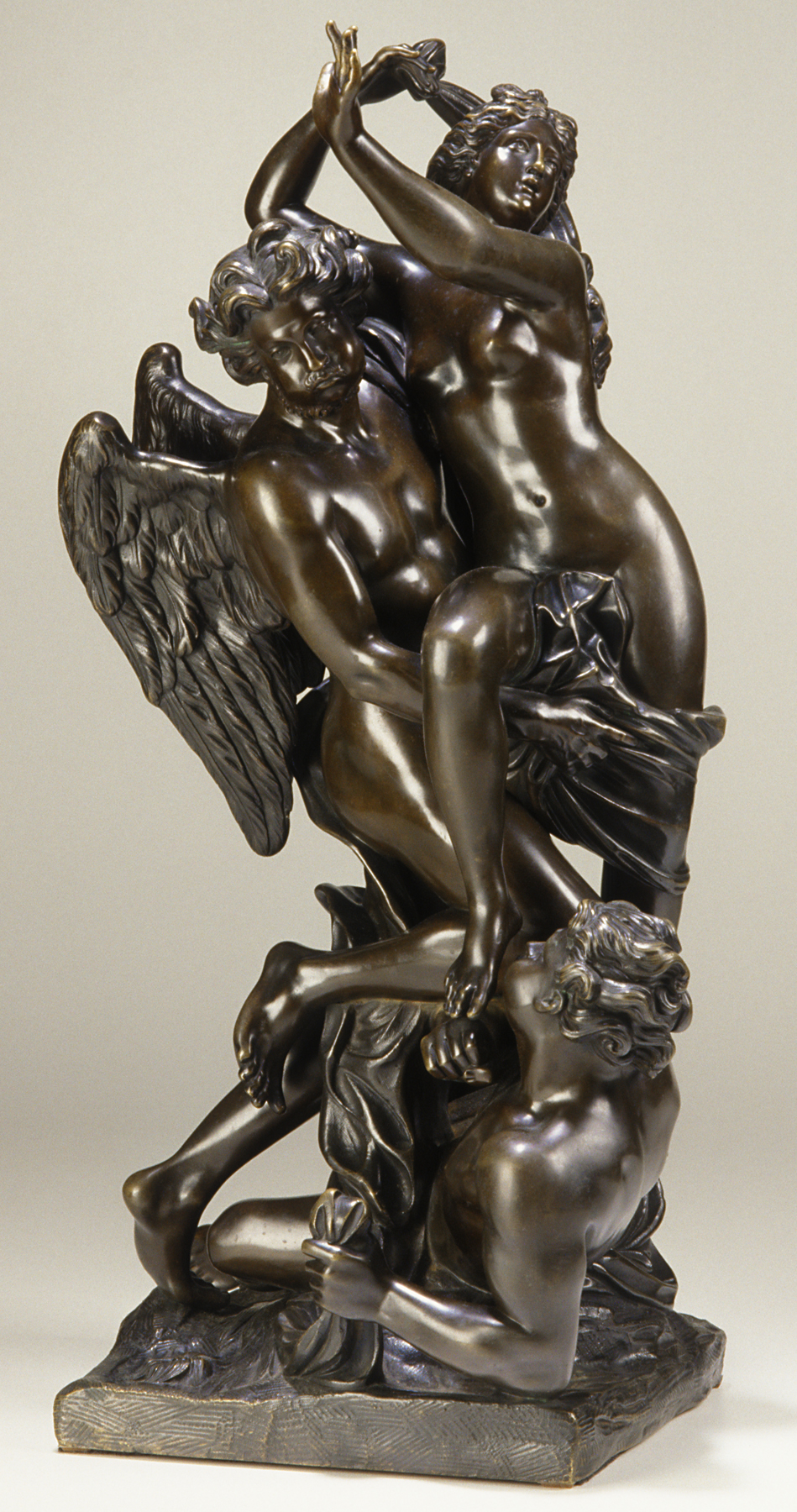The Rape of Orithyia by Boreas, Gaspard Marsy; Anselme Flamen
Artwork Overview
Gaspard Marsy, artist
1624–1681
Anselme Flamen, artist
1647–1717
The Rape of Orithyia by Boreas,
1700s
Where object was made: France
Material/technique: bronze
Dimensions:
Object Height/Width/Depth (Height x Width x Depth): 54 x 26.7 x 26.4 cm
Object Height/Width/Depth (Height x Width x Depth): 21 1/4 x 10 1/2 x 10 3/8 in
Object Height/Width/Depth (Height x Width x Depth): 54 x 26.7 x 26.4 cm
Object Height/Width/Depth (Height x Width x Depth): 21 1/4 x 10 1/2 x 10 3/8 in
Credit line: Museum purchase: Swannie Smith Zink Fund
Accession number: 1958.0003
Not on display
If you wish to reproduce this image, please submit an image request



